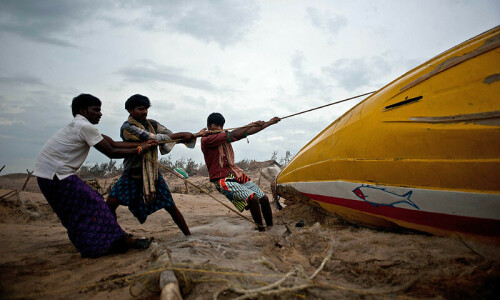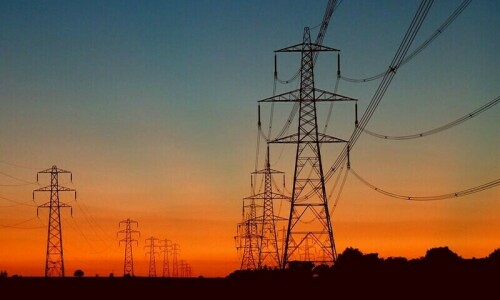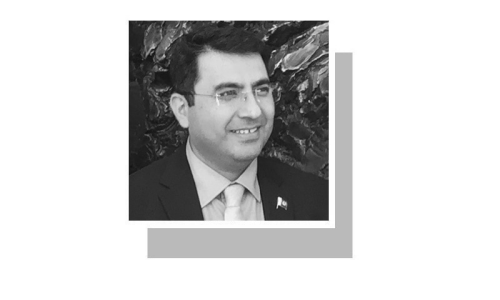POVERTY and environmental deterioration are closely linked. Environmental degradation drives poverty through its disproportionate impact on the poor. The nexus between poverty and the environment has meant disaster for the planet and its people. Each additional degree of environmental damage adds to the miseries of the undefended poor. In developing countries, millions of people are trapped on degraded lands at risk from the rise in sea level, droughts, crop failure and pollution.
Going by the number of people subsisting on less than $1.90 per day, there was a reduction in global poverty from 36 per cent in 1990 to 10pc in 2015. With the aim of eradicating poverty, the international community worked together and hammered out an ambitious plan contained in the 17 Sustainable Development Goals. The first SDG was specifically set to end poverty in all its forms by 2030.
Unfortunately, global poverty is on the rise again and environmental degradation is a major contributing factor. The combination of Covid, conflict and climate is threatening to exacerbate poverty. The economic slowdown during the pandemic may drag up to 160 million people into the poverty net. Climate change amplifies the risks and can thrust a further 130m people into poverty over the next decade.
Together, poverty and environmental degradation are inflicting serious blows on the earth’s ecosystems and also pushing the poor deeper into the quagmire of hunger, malnutrition, disease and destitution. There is no winner in this vicious cycle.
Environmental degradation is exacerbating poverty.
South Asia and sub-Saharan Africa are particularly hard hit as land degradation and water stress in these regions are leading to loss of livelihood and job opportunities for the majority of those who rely heavily on agriculture for a living. Devoid of social protection, they are distressed economically and may consequently suffer from mental health issues.
Developing countries’ efforts to end poverty and address environmental issues are impeded by a lack of finances. The progress in achieving the SDGs has been slow in no small part due to their monetary difficulties and heavy debts. The $100 billion pledge made in 2009 by developed countries for assisting poor nations for fighting climate change has not materialised.
Seeking financial assistance from development partners is, therefore, an inevitable but difficult recourse. Leading economists contend that the conditionalities of the international financial system are often least favourable to developing countries, entrapping them in a cycle of financial dependency. In his year-end press conference in 2021, UN Secretary General António Guterres observed that “the need to service an ever-mounting and more expensive debt will leave developing countries with little fiscal space for recovery, job creation, climate action, reimagining education” etc. as “today’s global financial system is supercharging inequalities and instability”.
To address these concerns, the UN favours the enlargement of the financial support base for poor countries.
Poverty and environmental issues will need to be tackled in tandem because further deterioration of the environment will increase poverty. A joint initiative of UNEP and UNDP ‘Poverty Environment Action’ promotes an integrated approach to mainstream poverty-environment objectives in national development plans, financial policies and budgets to strengthen the sustainable management of natural resources and alleviate poverty.
Like other developing countries, Pakistan also struggles with these issues. A redefined and integrated national policy approach can effectively deal with the cause-and effect relationship between poverty and the environment, addressing both simultaneously.
At the global level, much more needs to be done to tackle these global problems. The UN has called for the development of futuristic plans designed on evidence-based data to achieve internationally agreed goals under the framework of the Third United Nations Decade for the Eradication of Poverty (2018–2027).
Partnerships involving regional entities, governments and the private sector will be critical. Expanding South-South cooperation and aligning public and private finance with poverty and environmental actions will help in the implementation of the SDGs. Against the backdrop of the fault lines exposed by the pandemic, it is an opportune time to reform the international development paradigm and its financial rulebook.
The prospects of ending poverty will remain dim and the risks of an uncertain and bleak future will loom large unless multilateral efforts are strengthened to enhance effective collaboration for implementing the 2030 agenda for sustainable development. Speeding up action on the SDGs remains the best option.
The writer is director of intergovernmental affairs, United Nations Environment Programme.
Published in Dawn, February 9th, 2022












































